In this article we look at 7 common mistakes to avoid in emergency preparedness.
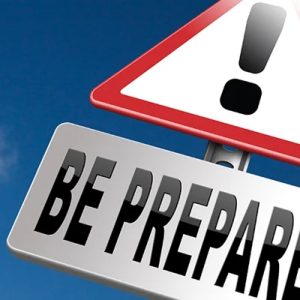 In a world filled with uncertainties and potential hazards, being prepared for emergencies is not just a recommendation; it’s a necessity. Whether it’s a natural disaster, a power outage, or any unexpected crisis, having a well-thought-out emergency plan can mean the difference between life and death. This article aims to shed light on the critical mistakes often made in emergency preparedness and offers valuable insights to help readers fortify their readiness.
In a world filled with uncertainties and potential hazards, being prepared for emergencies is not just a recommendation; it’s a necessity. Whether it’s a natural disaster, a power outage, or any unexpected crisis, having a well-thought-out emergency plan can mean the difference between life and death. This article aims to shed light on the critical mistakes often made in emergency preparedness and offers valuable insights to help readers fortify their readiness.
Check out this range of emergency survival kits by clicking here.
7 Common Mistakes to Avoid in Emergency Preparedness
Throughout this comprehensive guide, we will explore seven common mistakes people make when it comes to emergency preparedness and how to avoid them. From understanding the importance of risk assessment to preparing a fully-stocked emergency kit, we will equip you with the knowledge and skills to enhance your preparedness and safeguard your loved ones in times of crisis.
Now let us dive into the 7 common mistakes you really need to avoid in emergency preparedness.
Mistake 1: Lack of Risk Assessment
Understanding Potential Hazards and Risks
The first step in effective emergency preparedness is recognizing the potential hazards and risks specific to your region. From natural disasters like earthquakes, hurricanes, and wildfires, to man-made threats such as power outages and civil unrest, being aware of these dangers is vital in devising an appropriate preparedness strategy.
Conducting a Comprehensive Risk Assessment
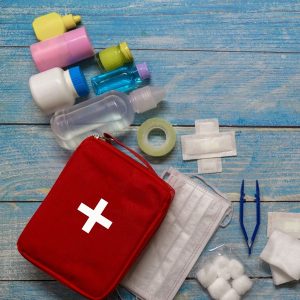 To create a robust emergency plan, conduct a thorough risk assessment of your surroundings. Identify vulnerable areas in your home, workplace, or community and determine how each scenario may impact your safety. By understanding the risks, you can tailor your preparedness efforts to address the most likely scenarios.
To create a robust emergency plan, conduct a thorough risk assessment of your surroundings. Identify vulnerable areas in your home, workplace, or community and determine how each scenario may impact your safety. By understanding the risks, you can tailor your preparedness efforts to address the most likely scenarios.
The Consequences of Neglecting Risk Evaluation
Neglecting risk assessment can lead to dire consequences during emergencies. Without proper knowledge of potential threats, you may find yourself ill-prepared to respond effectively, putting yourself and your family in harm’s way. Avoiding this mistake ensures that you are better equipped to handle any crisis that arises.
Check out this range of emergency survival kits by clicking here.
Mistake 2: Inadequate Emergency Planning
The Need for a Well-Structured Emergency Plan
Having a solid emergency plan is the backbone of preparedness. An effective plan outlines step-by-step procedures and guidelines to follow in various emergency situations. It establishes clear roles and responsibilities for each family member and ensures a coordinated response during critical times.
Key Elements of an Effective Emergency Plan
A comprehensive emergency plan includes communication protocols, evacuation routes, meeting points, and contact information for emergency services and loved ones. It should also consider the unique needs of family members, including pets, the elderly, and those with medical conditions.
Avoiding the Pitfalls of Poor Planning
Failure to create a well-structured emergency plan leaves you vulnerable and disorganized during emergencies. Without clear guidelines, panic may set in, leading to critical errors and hindering your ability to respond efficiently. By avoiding this mistake, you and your family can face any emergency with confidence and preparedness.
Check out this range of emergency survival kits by clicking here.
Mistake 3: Failure to Prepare an Emergency Kit
The Importance of a Well-Stocked Emergency Kit
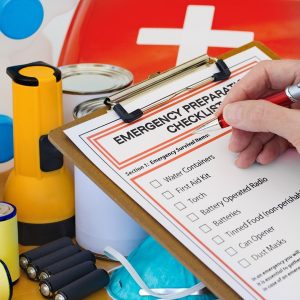 An emergency kit is a lifeline during crises, containing essential supplies to sustain you and your family until help arrives or the situation stabilizes. It serves as a crucial resource when access to regular amenities is disrupted, ensuring your basic needs are met.
An emergency kit is a lifeline during crises, containing essential supplies to sustain you and your family until help arrives or the situation stabilizes. It serves as a crucial resource when access to regular amenities is disrupted, ensuring your basic needs are met.
Essential Items to Include in Your Emergency Kit
A well-prepared emergency kit should include water, non-perishable food, first aid supplies, flashlights, batteries, a multi-tool, a battery-powered radio, and personal hygiene items. Tailor the contents to suit your family’s specific requirements and consider any unique needs or medical conditions.
Common Oversights in Emergency Kit Preparation
One of the most common mistakes is assuming that you can gather supplies after a crisis occurs. In reality, emergencies can happen suddenly, leaving little time for preparation. Neglecting to have a well-stocked kit can leave you unprepared and vulnerable when you need it most. By avoiding this oversight, you ensure that you have the necessary resources readily available when emergencies strike.
In the next sections, we will explore four more common mistakes in emergency preparedness and provide valuable insights to help you enhance your readiness and ensure the safety of your loved ones in any challenging situation.
Check out this range of emergency survival kits by clicking here.
Mistake 4: Not Knowing Proper First Aid
The Significance of First Aid Training
Proper first aid training is a fundamental skill that can mean the difference between life and death in emergencies. Knowing how to administer basic first aid can stabilize injuries, prevent complications, and buy valuable time until professional medical help arrives. It empowers individuals to be the first responders in critical situations, increasing the chances of survival for victims.
Key First Aid Techniques Everyone Should Know
From performing CPR (Cardiopulmonary Resuscitation) and treating wounds to managing choking incidents and providing basic medical care, there are several essential first aid techniques that everyone should learn. These skills equip you with the ability to take swift and appropriate action when someone is injured or in distress.
The Dangers of Ignorance in First Aid
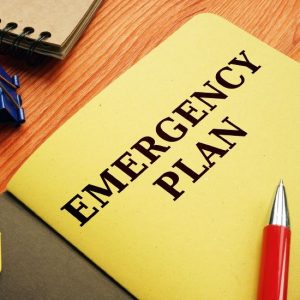 The consequences of not knowing proper first aid can be severe. Failure to administer immediate aid to an injured person can lead to worsening conditions, unnecessary suffering, or even fatalities. In emergencies, every second counts, and not having the knowledge to respond effectively can exacerbate injuries and put lives at risk. By recognizing the importance of first aid training and seeking to acquire these critical skills, you can become a valuable asset in emergency situations.
The consequences of not knowing proper first aid can be severe. Failure to administer immediate aid to an injured person can lead to worsening conditions, unnecessary suffering, or even fatalities. In emergencies, every second counts, and not having the knowledge to respond effectively can exacerbate injuries and put lives at risk. By recognizing the importance of first aid training and seeking to acquire these critical skills, you can become a valuable asset in emergency situations.
Check out this range of first aid kits by clicking here.
Mistake 5: Overlooking Communication Plans
The Role of Communication in Emergencies
Effective communication is the backbone of any successful emergency response. Being able to convey information quickly and accurately is crucial for coordinating efforts, seeking help, and keeping loved ones informed about your safety. During emergencies, communication can bridge the gap between those in distress and the outside world, ensuring timely assistance.
Developing a Reliable Communication Strategy
Creating a well-thought-out communication plan is essential to avoid chaos and confusion during crises. Designate a single point of contact for family members to check in with during emergencies. Share contact information with neighbors, close friends, and relatives who can act as conduits of information if direct communication is disrupted. Additionally, familiarize yourself with emergency communication channels provided by local authorities.
The Risks of Communication Breakdown
Neglecting to establish a communication plan can lead to confusion, separation of family members, and delays in receiving or providing vital information. During emergencies, traditional means of communication, such as phone lines, may be unreliable, making it essential to have backup methods like texting, social media, or walkie-talkies. By proactively addressing this oversight, you ensure that you and your loved ones can stay connected and informed during crises.
Check out this range of two way radios by clicking here.
Mistake 6: Ignoring Home Safety Measures
Securing Your Home Against Common Hazards
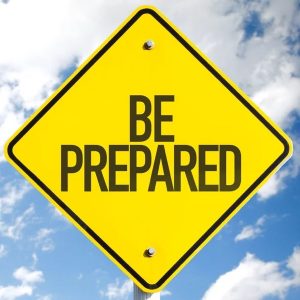 Overlooking home safety measures can leave your household vulnerable to preventable accidents and emergencies. Taking steps to secure your home against common hazards, such as tripping hazards, slippery floors, and poorly maintained electrical systems, significantly reduces the risk of injuries.
Overlooking home safety measures can leave your household vulnerable to preventable accidents and emergencies. Taking steps to secure your home against common hazards, such as tripping hazards, slippery floors, and poorly maintained electrical systems, significantly reduces the risk of injuries.
Fire Safety and Prevention at Home
Fire safety is paramount in emergency preparedness. Install smoke detectors on every level of your home and in sleeping areas. Create and practice a fire escape plan with all family members, designating escape routes and meeting points. Educate everyone on the proper use of fire extinguishers and never underestimate the importance of fire prevention practices.
The Ramifications of Neglecting Home Safety
Failing to prioritize home safety can lead to avoidable accidents, injuries, and property damage. Inadequate fire safety measures can result in devastating fires, while disregarding simple precautions can lead to trips, falls, and other accidents. Ignoring these safety measures not only puts you and your family at risk but can also have long-lasting financial and emotional repercussions. By being proactive and addressing potential hazards, you create a safer living environment for everyone in your home.
In the next sections, we will delve into the remaining common mistakes in emergency preparedness, covering aspects such as financial readiness, community engagement, and sustainable preparedness strategies. Stay tuned for Part 3 of this article, where we provide invaluable insights to further enhance your emergency preparedness journey and safeguard your well-being in any critical situation.
Check out this range of home safety kit by clicking here.
Mistake 7: Procrastination and Complacency
The Dangers of Procrastinating Preparedness Efforts
Procrastination is a common pitfall when it comes to emergency preparedness. Many individuals assume that disasters won’t happen to them or that they have plenty of time to prepare. However, emergencies can strike at any moment, and delaying preparedness efforts can leave you and your loved ones vulnerable and unprepared. Putting off important tasks like creating an emergency plan or assembling a disaster kit can have serious consequences when faced with a crisis.
Avoiding Complacency in Emergency Preparedness
Complacency is another trap that can hinder effective emergency preparedness. After taking some initial steps, some people may become complacent and believe they have done enough. However, preparedness is an ongoing process that requires continuous evaluation and improvement. Staying vigilant and proactive in enhancing your emergency plans and supplies is crucial for staying well-prepared.
The Price of Delaying Preparedness Actions
The price of procrastination and complacency in emergency preparedness can be high. When disaster strikes, you may find yourself scrambling to gather essential supplies, make last-minute plans, or worse, facing dire consequences due to lack of preparedness. Being unprepared can lead to panic, stress, and impaired decision-making during critical moments, making it even more challenging to navigate emergencies effectively.
Check out this range of emergency supplies kits by clicking here.
Conclusion
In this comprehensive guide to emergency preparedness, we have highlighted seven common mistakes to avoid in emergency preparedness that individuals often make when it comes to safeguarding themselves and their families in times of crisis. These mistakes include neglecting risk assessment, inadequate emergency planning, failure to prepare an emergency kit, lack of first aid knowledge, overlooking communication plans, ignoring home safety measures, and falling victim to procrastination and complacency.
Preparedness is not just a luxury; it is a necessity. Being ready for emergencies empowers you to protect your loved ones and navigate challenging situations with confidence. We strongly encourage every reader to prioritize emergency preparedness and take immediate action to rectify any of the mistakes mentioned in this article.
Emergencies can be unpredictable, but being proactive and resilient in the face of adversity can make all the difference. By investing time and effort into risk assessment, emergency planning, first aid training, communication strategies, and home safety, you build a strong foundation for preparedness. Remember that preparedness is an ongoing journey, and continuous learning and improvement will ensure that you and your family are better equipped to handle any challenge that may come your way.
As you embark on your preparedness journey, keep in mind that every step you take brings you closer to a safer and more secure future. Be proactive, stay informed, and above all, take action. By avoiding common mistakes and embracing preparedness, you are taking a critical step towards safeguarding the well-being of yourself and your loved ones in any situation that life may throw your way. Stay prepared, stay safe, and stay resilient!
Hopefully, thanks to this article, now you know these mistakes to avoid in emergency preparedness, you will be better equipped to keep yourself, your family and your loved ones safe.
Check out this range of emergency supplies kits by clicking here.
Check out more
